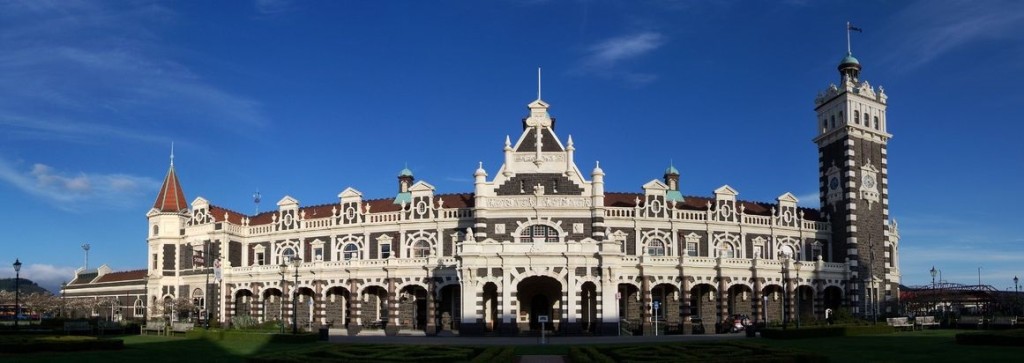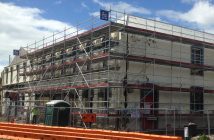Property owners will have no choice but to lock their buildings up and undergo demolition by neglect unless realistic provisions are put in place under the Second Generation District Plan, says Alex Voutratzis, Property Council director of policy and advocacy.

Dunedin’s historic railway station
Presenting to the Hearings Panel on the Heritage provisions of the Second Generation District Plan, Property Council asked Dunedin City Council to accurately assess property owner needs when determing which heritage buildings can and should be saved.
“Just because a building is old, doesn’t make it a quality reflection of a previous architectural era.
“Many older CBD buildings are earthquake prone and are therefore functionally obsolete. It is too costly to strengthen these buildings and owners should be able to demolish these in order to make way for redevelopment as part of CBD renewal,” he says.
Mr Voutrartzis advises that objective and rigorous data, analysis and evidence must be used in determining whether a decision is made to protect a building or precinct.
“This is crucial as the economic and societal costs of Dunedin City Council making poor policy decisions can be steep.
“This objective approach must take into consideration specific issues like the cost of earthquake strengthening, structural integrity of the building, construction materials and site typology.”
He suggests Council work collaboratively with commercial property owners factoring in:
• the time and cost involved in having buildings assessed
• the drop of building value as it is deemed an earthquake prone building
• loss of tenants and the jeopardising of owners’ rental income
“We have concerns that the decision-making process used in determining which buildings to include in the scheduled heritage buildings are often based on aesthetics or historical factors alone. This approach risks undermining any analysis undertaken to determine the economically or financially viability of a building.”
He states that for a variety of reasons, not all privately owned heritage buildings are economically or financially viable to save.
However Mr Voutratzis is quick to point out that Property Council supports the appropriate protection of historical heritage buildings as they provide amenity and a historical narrative that charts the evolution of our cities.
“Within a Dunedin context many of the best New Zealand examples of heritage are either central or local government owned buildings or churches. Buildings like the Town Hill, Railway Station, Court House, Knox Church or the Otago University Registry Office are the foremost heritage symbols that define Dunedin.
“We believe that these buildings are the heritage bottom lines and must be protected.”
The ideal outcome he believes is to protect what the community views as valuable, yet also enable property owners to demolish buildings where it makes sound economic sense to do so.
“We all want a Dunedin that has economic growth and is socially vibrant. But if a one size fits all approach or subjectivity clouds the heritage policy decision-making process Dunedin will end up with sub-optimal property outcomes. This would be a travesty for Dunedin’s future.”



